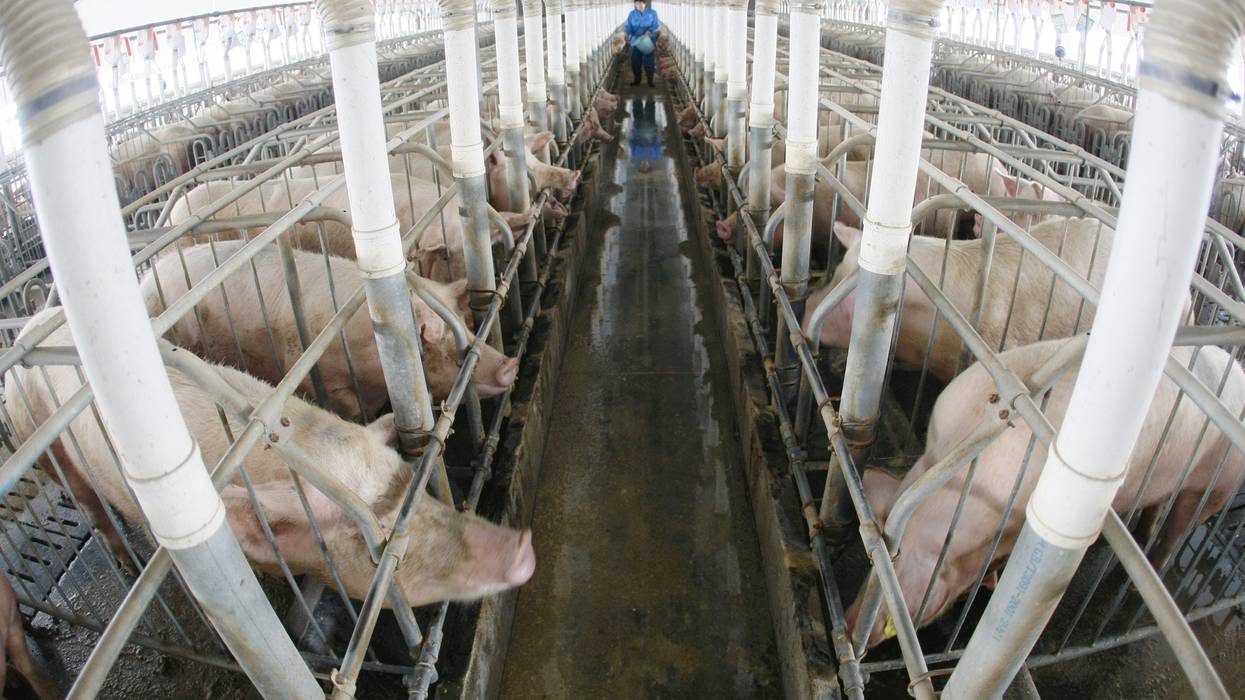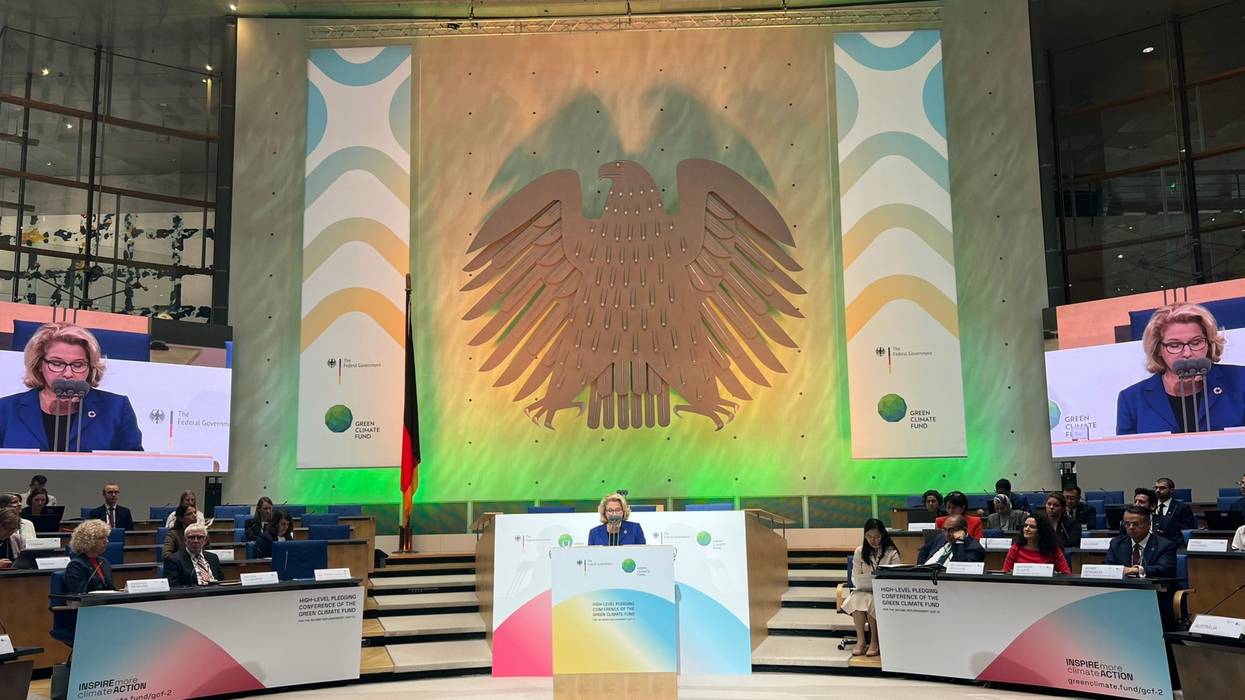The US Should Fund Climate Solutions, Not Fossil-Fueled War
In addition to cutting our own renewable programs to spend more on the carbon-intensive Pentagon, we’re also spending nearly 40 times more helping other countries do the same rather than helping them adapt to our warming planet.
Ten years ago as of December 2025, nearly every country in the world made a promise. By signing the Paris Agreement, governments committed to limit global temperature rises to no more than 2°C—and ideally 1.5°C— to avoid the most devastating impacts of a warming planet.
Recognizing their historic responsibility for greenhouse gas emissions, the Paris Agreement called on wealthier countries like the United States to contribute funding to help poorer countries adapt. And it envisioned the economic and social transformations needed to keep the planet from overheating to unlivable levels.
In practice, that means phasing out fossil fuels, scaling up renewable energy, and investing in sustainable systems—from agriculture to transportation—to keep our world powered and going.
Unfortunately, that’s not what our leaders are doing.
The Pentagon is the most carbon intensive institution on the planet, with emissions exceeding those of entire nations like Sweden, Denmark, and Portugal. And those emissions will likely grow as Pentagon spending continues to skyrocket.
With the world’s largest economy and the greatest chunk of historical emissions, the United States should be contributing an estimated $446 billion per year to meet its fair share of global climate action. Instead, Washington has repeatedly abandoned global leadership—joining the Paris Agreement in 2016, pulling out in 2020, rejoining a year later, and withdrawing again this year.
For the past century, at least 80% of US energy consumption has come from fossil fuels like natural gas, coal, and oil. Today, domestic energy demand is soaring as Big Tech and private corporations race to build massive, water- and energy-intensive AI data centers—further locking in fossil fuel dependence.
Meanwhile, rather than aligning its national priorities with climate commitments, the US government has doubled down on a different and dangerous path: wars and weapons.
The Pentagon is the most carbon intensive institution on the planet, with emissions exceeding those of entire nations like Sweden, Denmark, and Portugal. And those emissions will likely grow as Pentagon spending continues to skyrocket.
Congress recently approved a $900 billion Pentagon budget. When combined with the $156 billion boost for the Pentagon from President Donald Trump’s so-called “Big Beautiful Bill,” that brings the total to over $1 trillion for the US war machine.
That’s right: a trillion dollars.
At the same time, the Trump administration made sweeping cuts to environmental programs that took decades to build.
The Environmental Protection Agency’s budget was slashed by more than half—from $9.14 billion for 2025 to just $4.16 billion for 2026. And President Donald Trump has cancelled or frozen $29 billion in environmental grants for local communities, undermining efforts to secure clean air and water, clean up contaminated sites, improve public health, and create jobs.
The National Priorities Project of the Institute for Policy Studies, my organization, found that we’ve spent $79 billion on Foreign Military Financing over the last decade alone. In these deals, the US provides grants to other countries to purchase US-made weapons. On the flip side, only $2 billion has gone to the Green Climate Fund, the primary pool of money supporting nations most impacted by, yet least responsible for, climate change. (Under Trump, the figure is actually $0.)
So in addition to cutting our own renewable programs to spend more on the carbon-intensive Pentagon, we’re also spending nearly 40 times more helping other countries do the same rather than helping them adapt to our warming planet.
Ordinary people are already paying the price for these choices. Floods, hurricanes, and wildfires are growing more frequent and destructive, driving up recovery expenses and insurance costs. Utility bills are climbing, too, due to extreme temperatures and energy-thirsty AI data centers.
Ten years after the Paris Agreement, the choice is clear. We can continue down a path of fossil fuels and endless wars, or we can invest in climate solutions that actually keep people safe. Business as usual will leave homes destroyed, families hungry, and people sicker and more vulnerable.
The clock is ticking. It’s time to stop funding destruction and start putting money towards just, healthy futures for all.


